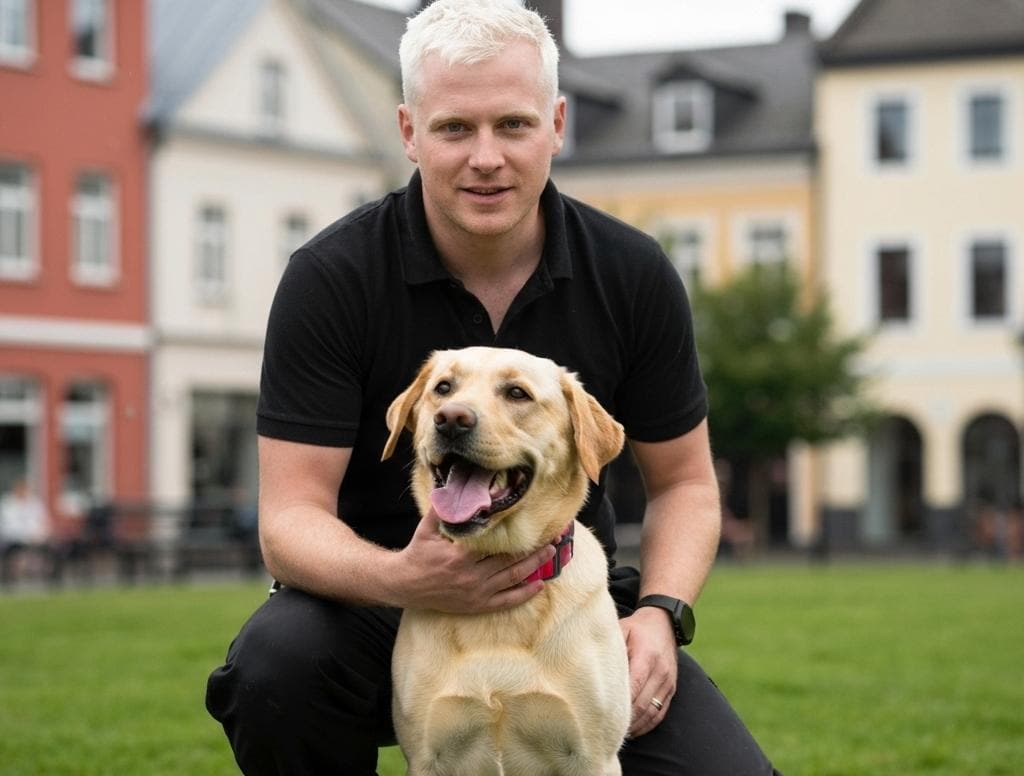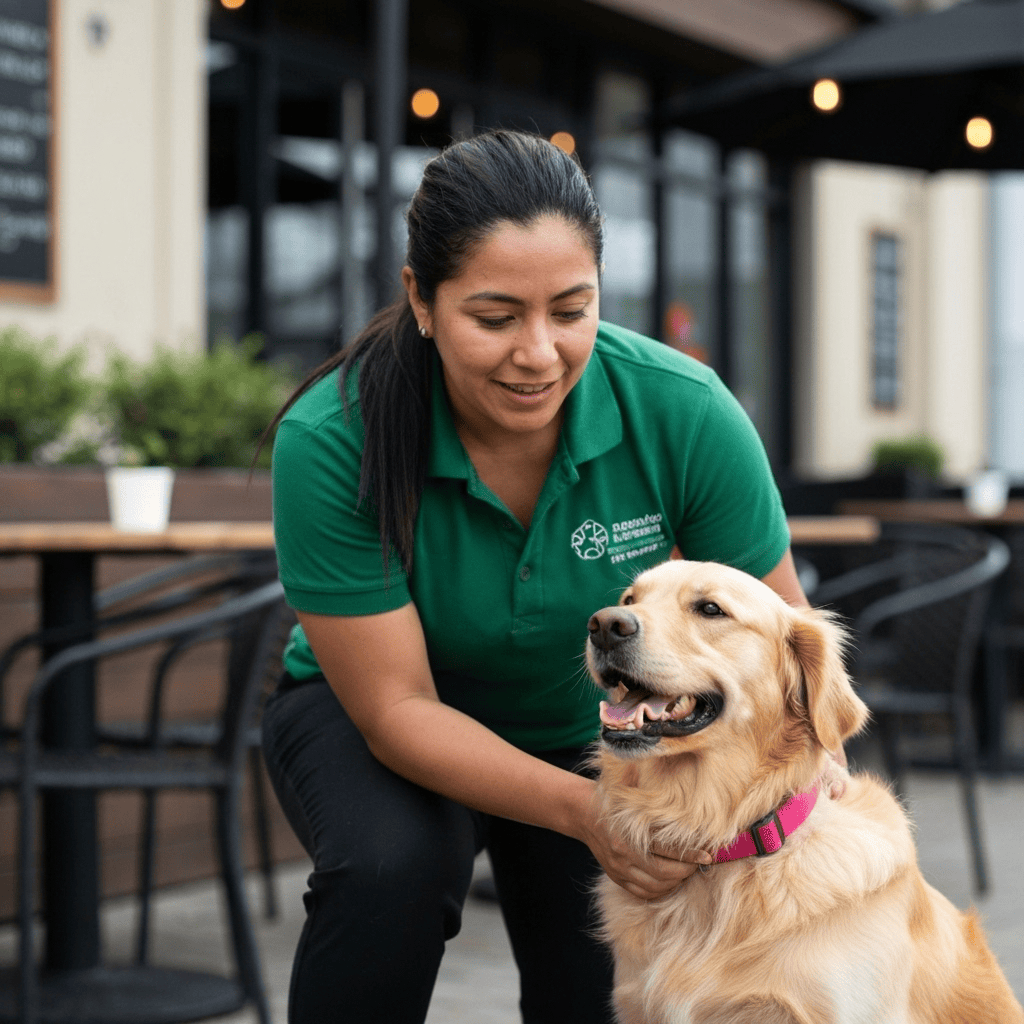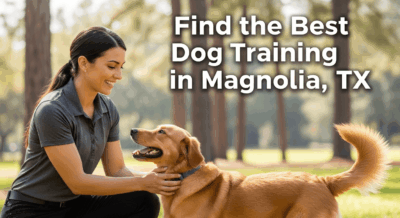Your Complete Guide to Choosing a Dog Trainer in Magnolia
If you live in Magnolia, you know what daily life with a dog looks like here. You’re walking quiet neighborhood streets one minute, then navigating the busy stretch of FM 1488 the next. Maybe you’re heading to The Woodlands for errands or meeting friends at a local patio where your dog needs to settle calmly beside your chair.
This is exactly why finding the right dog trainer matters so much. Your dog doesn’t just need to sit and stay in a sterile training room—they need skills that work in real Magnolia life. When you’re searching for dog training in Magnolia TX, you want someone who understands both dogs and the specific challenges of living in Montgomery County.
How to Choose the Right Trainer
The most important thing to look for is a trainer who uses positive reinforcement methods. This means they teach your dog through rewards and encouragement rather than fear or intimidation. Dogs trained this way don’t just learn faster—they’re more confident and reliable when you need them most.
Professional credentials tell you a lot about a trainer’s commitment to their craft. Look for certifications like CPDT-KA, KPA-CTP, or CTC. These show the trainer has invested time in learning science-based methods and stays current with best practices.
But here’s what really matters: the trainer should understand your daily routine. When you describe walking past the youth baseball fields on weekends or hiking the trails at W.G. Jones State Forest, they should immediately know how to prepare your dog for those specific situations.
If you’re considering in-home dog training, ask about travel fees to your neighborhood. Magnolia covers a lot of ground, from the developments along 1488 to the more rural areas around Dobbin and Decker Prairie. For group classes, find out about class sizes and how they handle dogs who need a little extra space to feel comfortable.
A professional trainer will carry liability insurance, provide clear written policies, and give you a training plan you can follow at home. If they offer boarding services, ask specific questions about supervision and daily care.
Common Dog Training Methods Explained

The best trainers in the Magnolia area focus on positive, science-based methods that work for real families.
Puppy training and socialization is where everything starts. This isn’t just about house training (though that’s crucial too). It’s about building your puppy’s confidence, teaching bite inhibition, and helping them learn that new experiences are fun rather than scary. The earlier you start, the easier everything else becomes.
Basic obedience covers the skills you’ll use every single day: sit, down, stay, come when called, and walking nicely on a leash. These aren’t just party tricks—they’re the foundation for everything from neighborhood walks to visits to your vet’s office.
When dogs struggle with fear, reactivity, or separation anxiety, that’s where behavior modification comes in. This specialized work uses techniques like desensitization and counterconditioning to change how your dog feels about triggers. If your dog has serious behavioral challenges, look for trainers with advanced certifications like CBCC-KA or IAABC-CDBC.
Private lessons let the trainer focus entirely on your dog’s specific needs. You might start in your living room, move to your front yard, then gradually work up to busier locations as your dog gets more confident.
Group classes add the challenge of other dogs and people in a controlled environment. Good classes keep groups small so every dog gets attention and nervous dogs don’t get overwhelmed.
Day training programs let the trainer work with your dog during the day while you’re at work, then teach you how to maintain the progress in the evenings. Board and train programs can help with intensive issues, but make sure you understand exactly how your dog will be cared for and trained while away from home.
Local Rules That Affect Training in Magnolia
The good news is that Montgomery County keeps dog regulations fairly straightforward. Still, there are a few rules that affect how and where you can train.
Leash laws are pretty standard around here. Your dog needs to be leashed in public parks and on trails unless you’re inside a designated off-leash dog park. The Woodlands Township has several great dog parks.
Texas requires all dogs to have current rabies vaccinations, which you’ll need for group classes and dog park visits. You can find complete information about state requirements at Texas DSHS Rabies.
If your dog’s barking has become a problem, know that repeated nuisance noise can lead to complaints from neighbors. A good trainer can help you figure out why your dog is barking and teach them calmer ways to spend time alone.
Most parks welcome casual training practice as long as you follow posted rules. If your trainer wants to hold group sessions in a public space, they may need permission from the property owner.
Average Cost of Dog Training in Magnolia TX (Updated for 2025)
Training costs around Magnolia reflect the rates you’ll see throughout Montgomery County and the northern Houston suburbs. Prices vary based on the trainer’s experience, how far they need to travel, and what you’re trying to accomplish with your dog.
| Service Type | Typical Price Near Magnolia |
|---|---|
| Puppy classes or group classes (4–6 weeks) | $160 – $300 total |
| Private lessons (60–90 minutes) | $110 – $180 per session |
| In-home dog training packages (4–6 visits) | $420 – $750 total |
| Day training (trainer works your dog, then coaches you) | $500 – $900 per week |
| Board and train (2–4 weeks) | $1,900 – $4,200 total |
| Behavior evaluation for reactivity or fear | $140 – $250 initial consult |
Many trainers offer a free consultation or phone call to discuss your goals before you commit to a program. Ask what’s included in each package, how they measure progress, and whether there are extra fees for travel or missed appointments.
Questions to Ask a Potential Dog Trainer
Before you choose a trainer, have an honest conversation about their methods and experience. Here’s what you should ask:
- What training methods do you use, and how do you keep sessions positive for my dog?
- What credentials or continuing education do you have?
- How will you customize the training program for my dog’s personality and my family’s schedule?
- Do you offer private lessons, group classes, or day training, and which would work best for our situation?
- How do you help dogs who get overwhelmed in busy places like parks or shopping centers?
- What exactly is included in each package, and are there additional fees I should know about?
- Do you carry liability insurance?
- How will you teach me to work with my dog between sessions?
- If my dog has behavior problems, do you work with veterinarians when needed?
Local Resources for Dog Owners
Magnolia’s location gives you access to some excellent places to practice training skills and socialize your dog.
The Woodlands has three great dog parks: Bear Branch, Cattail, and Terramont. Each offers fenced areas where dogs can play off-leash and practice recall skills. Check current hours and rules at Township Dog Parks.
W. G. Jones State Forest provides miles of trails where you can work on leash skills around wildlife distractions. Dogs must stay leashed, but the varied terrain makes for excellent training opportunities. Find maps and current information at Texas A&M Forest Service.
Spring Creek Greenway connects multiple parks with long, shaded paths perfect for building your dog’s stamina and focus. All pets must be leashed, and you can plan your visit using resources from Harris County Precinct 4.
For a bigger adventure, Huntsville State Park offers camping and varied terrain about an hour north of Magnolia.
If you need vaccines, microchipping, or other basic services, Montgomery County Animal Shelter often hosts low-cost clinics throughout the year.

Common Questions About Dog Training in Magnolia
How much does in-home dog training cost?
Most trainers in the Magnolia area charge $110 to $180 per session for in-home visits. Complete packages typically run $420 to $750 for four to six lessons, depending on your dog’s needs and how far the trainer needs to travel.
Is in-home dog training worth it?
For many Magnolia families, absolutely. In-home training lets you work on the specific challenges you face every day, like your dog pulling toward the neighbor’s fence or getting overly excited when visitors arrive. You’re learning in the environment where you actually need the skills.
Can you pay someone to house train your dog?
Yes, many trainers offer puppy packages or day training focused on potty training. They’ll help establish a routine and teach you how to maintain it, though consistency from your family is what makes the difference long-term.
What is the 3-3-3 rule for dog training?
This is a helpful guideline for newly adopted dogs: expect about three days for your dog to decompress, three weeks to learn your routines, and three months to truly settle into your home. Good trainers design programs that respect this timeline rather than rushing the process.
How long will it take to see results?
Basic manners like sit, stay, and loose-leash walking typically take four to eight weeks with consistent daily practice. More complex issues like reactivity or separation anxiety need longer timelines and patience. What you do between training sessions matters just as much as the sessions themselves.
What should I bring to group classes?
Pack a regular collar or harness, a six-foot leash, plenty of small treats your dog loves, and water. Leave retractable leashes at home—they make it harder to maintain control in group settings. You’ll also need proof of current vaccinations.
What’s the leash law in Magnolia?
Dogs must be leashed in public spaces throughout the area, including parks and trails. The only exceptions are designated off-leash areas like the dog parks in The Woodlands. Popular spots like W. G. Jones State Forest and Spring Creek Greenway require leashes at all times.
Do I need a dog license in Montgomery County?
Montgomery County doesn’t require pet licensing, but your dog must have current rabies vaccination and visible identification tags. Consider getting your pet microchipped through local resources like the Montgomery County Animal Shelter.
What shots does my dog need in Texas?
Texas requires current rabies vaccination for all dogs. Your veterinarian will recommend additional vaccines based on your dog’s age, health, and lifestyle. The state provides guidance at Texas DSHS.
Are dog trainers licensed in Texas?
Texas doesn’t require special licensing for dog trainers, though they must follow normal business regulations. Professional trainers should carry liability insurance and, if they board dogs, meet appropriate facility standards.
Where can I practice off-leash recall?
Start with fenced areas like the dog parks at Bear Branch, Cattail, or Terramont in The Woodlands. Before going off-leash anywhere, practice with a long training line in quieter areas until your dog’s recall is absolutely reliable.
Which local dog parks allow training?
The Woodlands dog parks welcome training practice during off-peak hours, but be considerate of other users. Keep sessions short and positive, and always clean up after your dog.
What trails near Magnolia allow dogs?
Most area trails require leashes but welcome well-behaved dogs. W. G. Jones State Forest, Spring Creek Greenway, and Huntsville State Park all offer good options, though you should check current rules and hours before visiting.
Finding the Right Fit for Your Family
The best training happens when you find someone who understands both your dog’s needs and your daily life in Magnolia. Start with situations where your dog can succeed, then gradually add the real-world challenges you face, whether that’s busy shopping centers, weekend sports events, or family gatherings.
Look for a professional dog trainer who explains their methods clearly, tracks your progress, and most importantly, teaches you how to help your dog succeed between sessions. Credentials like KPA-CTP, CTC, or CPDT-KA show a trainer’s commitment to ongoing education. For complex behavioral issues, look for specialists with IAABC-CDBC or CBCC-KA credentials.
Remember that training is a process, not a quick fix. The goal isn’t perfection—it’s building a stronger relationship with your dog and giving them the skills they need to be a happy, confident part of your Magnolia life.
